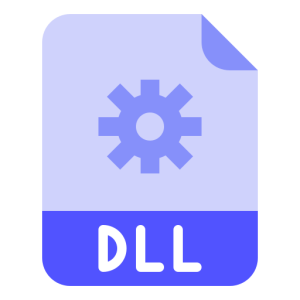Description
MFC140U.DLL is a dynamic link library (DLL) file that is part of the Microsoft Foundation Classes (MFC), which is a collection of pre-built classes and functions for developing Windows-based applications. This DLL file specifically corresponds to the MFC library for the version of Microsoft Visual C++ with the number “140.” MFC140U.DLL provides the necessary runtime support and resources for applications developed using the Microsoft Visual C++ programming language and leveraging the MFC framework.
The MFC library, including MFC140U.DLL, offers a wide range of functionality and capabilities for creating rich and interactive user interfaces, handling user input, managing windows, dialogs, controls, and more. It simplifies the development process by providing ready-to-use classes and functions that encapsulate common Windows programming tasks.
MFC140U.DLL is required by software applications developed using Microsoft Visual C++ and MFC. Developers often include the necessary redistributable packages that contain MFC140U.DLL to ensure that users have the required runtime components installed on their systems. Without the proper version of MFC140U.DLL, applications may fail to execute or encounter compatibility issues.
It’s important to note that the version number “140” in the filename (“MFC140U.DLL”) corresponds to the version of Microsoft Visual Studio and the MFC library. Different versions of Visual Studio and the associated MFC library may have different version numbers in their filenames. Therefore, it is crucial for users to have the correct version of the Microsoft Visual C++ Redistributable package installed to ensure compatibility with software that depends on MFC140U.DLL.
Purpose and Functionality
MFC140U.DLL serves as an essential component of the MFC library, providing foundational support and functionality for applications developed using Microsoft Visual C++ and MFC. Some of its primary purposes and functionalities include:
- User Interface Framework: MFC140U.DLL provides a comprehensive framework for creating graphical user interfaces (GUIs), including standard Windows controls, custom controls, dialog boxes, and more. It simplifies the process of developing visually appealing and interactive applications.
- Event Handling: The DLL facilitates event handling and message routing, allowing applications to respond to user input, system events, and other external stimuli. It streamlines event-driven programming and enables applications to be responsive and interactive.
- Document/View Architecture: MFC140U.DLL implements the document/view architecture, which provides a structured way to manage data and its associated views. It handles tasks such as data serialization, document management, and UI updates in response to data changes.
Common Use Cases
MFC140U.DLL is widely utilized by developers creating Windows-based applications using Microsoft Visual C++ and the MFC framework. It is commonly required for the following use cases:
- GUI Application Development: MFC140U.DLL enables developers to build applications with rich graphical interfaces, leveraging the pre-built MFC classes and controls for UI design, layout, and event handling.
- Resource Management: The DLL assists in managing resources such as icons, bitmaps, menus, string tables, and more. MFC140U.DLL provides functionality for resource loading, manipulation, and integration into the application.
- Internationalization and Localization: MFC140U.DLL includes features to support internationalization and localization of applications, such as multilingual string support, date/time formatting, and locale-specific sorting and collation algorithms.

